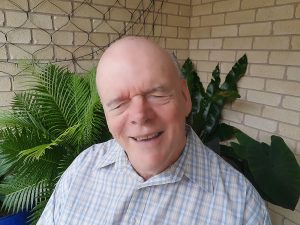Forster resident, Ross McGrgeor discovered he had Aboriginal heritage at age 32. Here he reflects on January 26.

Once again January 26 raised issues, should we commemorate Australia Day, or lament Invasion Day?
Let’s look at the Sydney area at that time, in 1788. Aboriginal tribes or clan groups lived on their traditional tribal areas, nowadays called their Country. In fact the entire Australian landmass was covered by adjoining tribal areas, estimated at over 600. The Aboriginal population at that time was estimated to be around 3 000 000.
The colonists landed on Sydney Cove, that is Gadigal land, the country of the Gadigal tribe or also known as clan.
Heading South across the Georges River, they were in Tharawall tribal land. Going West past Parramatta they were in Darug land and further on Gundeungurra lands.
The tribes used their land for hunting, ceremonies, food gathering and meetings.
Now, the settlers were moving there and simply taking the land, pushing the Aboriginal people off their tribal lands.
The Aboriginal people started fighting back, spearing livestock, and burning buildings.
Thus a conflict developed.
The settlers then resorted to sending out shooting parties to teach the Aboriginal people a lesson and to clear them off the land, out of the way of the settlers.
Note the Appin massacre, ordered by Governor Macquarie in 1816.
This settlement process actually happened. In other words an invasion, accompanied by many massacres of thousands of Aboriginal people over the ensuing 120 years.
However the white leadership of today insists that it was a peaceful settlement and well, there weren’t that many Aboriginal people there at the time and they just sort of blended in with the settlers.
There are many writings within the historical record, describing violent contact and massacres.
But many people choose to simply ignore these. Or have no knowledge of them.
Sooner or later, the white leadership is going to have to face the truth of our history. Where they will acknowledge 26 January was an invasion of Aboriginal lands and the start of 120 years of massacres.
I’m reminded of the 1980s and 1990s, where children were complaining of sexual abuse in the Christian churches, however the police officer, school principal, the archbishop and the politician would strenuously deny these claims, saying the children were simply lying.
The establishment preferred instead to hold on to a sanitised view of the situation.
However, ultimately truth won out, and in the 2000s and today the real story is known and acknowledged.
The same thing must eventually happen re January 26th.
The truth must eventually be recognised and accepted by all; When the white leadership acknowledges it was an invasion and that the Aboriginal point of view of that day is totally valid and historically correct.
Why should the leadership do this?
Firstly, because it is the true history.
Secondly, it recognises the trauma faced by the Aboriginal people. To ignore it, trivialises heir history, and the feelings and values of Aboriginal people and the ongoing effect it has had on them.
The white leaders, say such things as, “Well it was over 200 years ago, time to move on now.” Or, “We’ve done so much for the Aboriginals since then, they shouldn’t complain but be grateful.” Or, “Acknowledging an invasion, is simply being divisive, and we are now one country and we should think and act as one.”
If we met a daughter who had lost her father in the Port Arthur massacre 1996, would we say to her, “That was 25 years ago, get over it.” Or, “It wasn’t that bad, it could have been much worse.” Or, “Just accept it and move on.”
Of course we would never say such things to her. We wouldn’t want to trivialise her memories or feelings.
The same applies to Invasion Day. We must stop trivialising the Aboriginal point of view, instead recognising it is as valid as any other group of people who have suffered major trauma.
The white leadership will have to eventually accept our true history, and embrace the Aboriginal peoples’ experience and perspective. Respecting that we are a very important part of the Australian nation.
We weren’t just a race of savages, aimlessly wandering the land. Instead, we had and have a very rich culture and ethics and a value system.
Some white folks say, “Why should I recognise Invasion Day, why should I be made feel guilty for something I had no part of?”
There is no intention of laying guilt or of blame on the current population.
If we said to the daughter, “I’m very sorry to hear of your loss and the memories you must have.”
We are simply empathising with her and supporting her feelings.
Similarly acknowledging Invasion Day, is an act of empathising with Aboriginal people. Accepting our trauma, rather than trivialising it. Accepting the sense of loss felt by many Aboriginal people.
A radio advertisement for Australia Day, said we must all work together as a nation, and to do that we must talk with each other and listen to each other.
I believe it is time for the Australian general population and the leadership to listen to the Aboriginal voice.
Ross McGregor
Forster.
Ross Mcgregor was born in Sydney 1949. At the age of 8 he became blind, and after completing year 10 he took up a career in music.
He operated a recording studio in Sydney for 25 years, and now lives in Forster doing recording projects and playing piano at aged care homes and for functions.
At age 32 he discovered his Aboriginal heritage and is now very interested in Aboriginal culture and teaching “correct” Aboriginal history.
